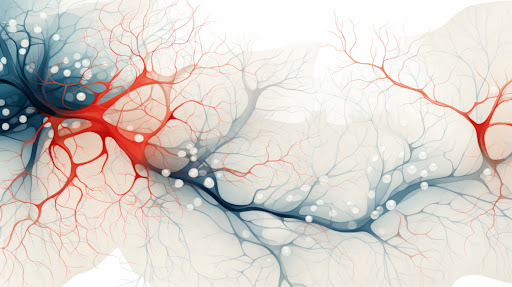In This Article
- Can Weed Help with MS?
- Which Terpenes Help With MS?
- How to Choose Strains for MS
- Understand the Role of Terpenes and Cannabinoids
- Check the Certificate of Analysis (COA)
- Consider Strain Types and Families
- Learn from Patient Experiences
- The 5 Best Strains for MS
- 1. Lemon Jack
- 2. CBD Shark
- 3. Golden Goat
- 4. Pennywise
- 5. CBD Critical Mass
- References
Key Takeaways
- Terpenes like pinene, linalool, myrcene, and caryophyllene may aid in managing multiple sclerosis symptoms.
- The five best strains for MS may include Lemon Jack, CBD Shark, Golden Goat, Pennywise, and CBD Critical Mass.
- To choose strains for MS: Understand the role of terpenes and cannabinoids. > Check the COA. > Examine packaging and labels. > Consider strain types and families. > Learn from patient experiences.
Every cannabis strain offers a unique combination of cannabinoids and terpenes to deliver specific effects. For new patients, navigating across this extensive selection might seem daunting.
Identifying the most suitable strain for specific needs requires careful consideration. It can impact the management of symptoms, especially for conditions like multiple sclerosis (MS).
Finding the best strains for MS may improve a patient's quality of life. What are the best strains for multiple sclerosis, though? And how do patients narrow in on those varieties?
Can Weed Help with MS?
Current research suggests that cannabis may offer several benefits for patients with MS.
Cannabinoids may have neuroprotective effects by regulating neuron excitability in the central nervous system (CNS). Since excessive neuron excitability can contribute to MS symptoms, regulating that excitability with cannabis may help relieve some of these pain points.1
The right blend of THC and CBD may help alleviate specifically pain and spasticity. The oromucosal spray Sativex currently contains both cannabinoids. Clinical trials of the spray highlight that it might be a well-tolerated treatment with minimal side effects, including difficulty concentrating, diarrhea, euphoria, dry mouth, and dizziness. Sativex may be an attractive option for managing spasticity related to MS and cancer pain.2
Most research on the topic of cannabis and MS thus far finds that THC or THC:CBD products may be the go-to for MS. Separate research, known as the CAMS trial, assessed the effects of cannabis on 630 patients with spasticity. Aside from mild side effects, the results found a positive outcome for cannabis in managing MS symptoms. Patients saw the most improvement in sleep problems after using oral cannabis products.3
Patients report cannabis to be effective in managing MS symptoms, particularly neuropathic pain. A survey by NuggMD indicates that many patients find cannabis as effective as opiates for neuropathic pain relief. Furthermore, CBD may have pain-reducing and anti-inflammatory properties. It may offer a well-tolerated and safe option for pain management in MS patients.4
Finding the ideal MS weed strain will take time and require patients to take notes and experiment with different options. Individual experiences may vary, but many find relief from symptoms through cannabis therapy.
Which Terpenes Help With MS?

Terpenes may play a significant role in the therapeutic effects of cannabis. Researchers have identified some of these aromatic molecules as potentially beneficial for managing MS symptoms.
Pinene and linalool are terpenes that may help with sleep and mental health. Traditional medicine has long used essential oils rich in alpha-pinene and beta-pinene to aid sleep. Recent research suggests these terpenes might support cognitive health by improving sleep quality.5 Meanwhile, linalool is known for its sedative and relaxing properties. It activates the parasympathetic nervous system, which can further enhance sleep and relaxation.6
Multiple clinical reports suggest that terpenes can promote pain relief in humans. Studies have specifically examined limonene, linalool, and geraniol for this purpose.7 Meanwhile, other research looks at alpha-humulene, which may be effective for pain, inflammation, and more.8
Further research observes beta-caryophyllene, a common terpene in cannabis. The molecule may have various effects, including antidepressant, anti-inflammatory, and pain-relieving.9 Some evidence notes that terpinolene may also have anti-inflammatory effects. Terpinolene may deliver certain types of pain relief, too.10
Cultivars with specific terpenes may relieve the most pain. Strains with beta-caryophyllene and beta-myrcene were reported to be most preferred for headache and migraine patients in a 2018 study. High-THC, low-CBD strains were also frequently reported to provide pain relief.11
Overall, the best terpenes may be those that address key symptoms such as pain, inflammation, and sleep disturbances. These might include:
- Pinene
- Linalool
- Limonene
- Geraniol
- Caryophyllene
- Terpinolene
- Myrcene
By selecting strains high in some of these terpenes, patients may find more effective relief from MS-related symptoms.
How to Choose Strains for MS
There are several factors to consider when finding strains to manage MS symptoms.
Understand the Role of Terpenes and Cannabinoids
Terpenes and cannabinoids are crucial in determining a strain's effects. Patients should look for strains high in terpenes like pinene, linalool, limonene, geraniol, caryophyllene, terpinolene, and/or myrcene. These terpenes have shown the most potential in addressing MS symptoms such as pain, inflammation, and sleep disturbances.
Additionally, the blend of THC and CBD can significantly impact symptom relief. Finding a balanced combination may deliver an entourage effect for even stronger relief.
Check the Certificate of Analysis (COA)
A COA is a document provided by cannabis testing labs that outlines a strain's cannabinoid and terpene profile and lists test results for other potentially harmful components. It helps ensure accuracy and safety, no matter the cannabis product you're buying. COAs should be easily visible on a product or accessible through the product website.
Consider Strain Types and Families
Certain cannabis strain families may deliver specific effects that might benefit MS patients.
- OG strains like OG Kush and OG Shark often contain high THC levels and terpenes such as β-caryophyllene and myrcene.
- Jack Herer strains, such as Lemon Jack, may help with pain relief and mental clarity thanks to terpenes like pinene and terpinolene.
- Strains like Super Silver Haze contain uplifting effects with terpenes like limonene. The combo may improve mood and reduce fatigue.
- High-CBD strains, such as CBD Critical Mass, provide relief without intense intoxicating effects. It helps some patients reduce spasticity and improve comfort.
- Some may wonder, does indica help muscle spasms? Indica-labeled strains are often used for muscle relaxation and pain relief. Strains like Northern Lights, with terpenes like myrcene and linalool, might be beneficial.
Learn from Patient Experiences
Past patient reviews can provide valuable insights into which strains have been effective for others with MS. Many patients prefer strains with high THC for pain relief, while others find balanced THC ratios more beneficial.
By considering these factors, patients can make more informed choices to find the best strains for MS symptom relief.
The 5 Best Strains for MS

Below are five of the top strains patients report helping with MS symptoms. They might be particularly effective due to their terpene profiles, cannabinoid content, or combo.
1. Lemon Jack
Lemon Jack is reported to stoke energetic, focused, and talkative effects. Patients report that it helps with stress, depression, and fatigue, among other symptoms.
The strain draws inspiration from both parent strains, Jack Herer and Lemon Kush. As a result, it's often used by patients for headaches and sleep issues.
Terpinolene tends to be its dominant terpene, along with caryophyllene and myrcene. The blend may be beneficial for MS symptoms.
2. CBD Shark
CBD Shark tends to result in an equal ratio of THC and CBD. It also contains CBG. The combination may help with an array of symptoms, including inflammation, anxiety, and pain.
A benefit of CBD Shark is that the 1:1 CBD:THC ratio means patients can enjoy relief without the overly intoxicating effects of THC. A clear-headed experience, patients report feeling relaxed, focused, and even tingly.
Myrcene is one of its dominant terpenes, and it may help with several MS symptoms. This strain is also high in pinene and caryophyllene, which may help to encourage an entourage effect.
3. Golden Goat
A higher-THC strain than some others, Golden Goat can contain around 20% THC and 1% CBG. The strain may energize, uplift, and induce happiness.
Patients report that Golden Goat helps with symptoms of stress, depression, and anxiety. The strain often delivers full-body effects.
By combining terpinolene, caryophyllene, and myrcene, patients experience focus and mild pain relief. That combo may be especially beneficial to MS patients.
4. Pennywise
Pennywise is a cross between Jack the Ripper and Harlequin. Rich in CBD, patients find it effective for symptoms of neurological disorders, PTSD, arthritis, and more.
With a 1:1 ratio of CBD and THC, its intoxicating effects are milder and may be more relaxing. Patients use Pennywise for anxiety, stress, and pain, making it a promising option for some MS symptoms.
The strain's dominant terpene, myrcene, may contribute to its calming and anti-inflammatory effects. Pair that with terpinolene and pinene, and it's no wonder that many patients find relief with this cultivar.
5. CBD Critical Mass
CBD Critical Mass is a versatile strain for patients. Used for depression, muscle pain, insomnia, and anxiety, it may offer diverse enough effects for any time of the day.
CBD Critical Mass is said to relieve some patients from inflammation, pain, and anxiety. Its terpene profile consists of myrcene, pinene, and caryophyllene. That blend may offer a wide array of benefits, especially for MS patients.
It's important to recognize that everyone is different. What works for one patient may not work for the next. Experiment with different strains to find the best fit for your specific condition. For personalized guidance, consult with a healthcare professional or reach out to experts at NuggMD.
References
- Nouh RA, Kamal A, Oyewole O, Abbas WA, Abib B, Omar A, Mansour ST, Abdelnaser A. Unveiling the Potential of Cannabinoids in Multiple Sclerosis and the Dawn of Nano-Cannabinoid Medicine. Pharmaceutics. 2024; 16(2):241. https://doi.org/10.3390/pharmaceutics16020241 ↩︎
- Nielsen S, Germanos R, Weier M, et al. The Use of Cannabis and Cannabinoids in Treating Symptoms of Multiple Sclerosis: a Systematic Review of Reviews. Current neurology and neuroscience reports. 2018;18(2). doi:doi.org/10.1007/s11910-018-0814-x ↩︎
- Haddad F, Dokmak G, Karaman R. The Efficacy of Cannabis on Multiple Sclerosis-Related Symptoms. Life. 2022; 12(5):682. https://doi.org/10.3390/life12050682 ↩︎
- Mlost J, Bryk M, Starowicz K. Cannabidiol for Pain Treatment: Focus on Pharmacology and Mechanism of Action. International Journal of Molecular Sciences. 2020; 21(22):8870. https://doi.org/10.3390/ijms21228870 ↩︎
- Weston-Green K, Clunas H, Jimenez Naranjo C. A Review of the Potential Use of Pinene and Linalool as Terpene-Based Medicines for Brain Health: Discovering Novel Therapeutics in the Flavours and Fragrances of Cannabis. Frontiers in Psychiatry. 2021;12. doi:https://doi.org/10.3389/fpsyt.2021.583211 ↩︎
- Cui J, Li M, Wei Y, et al. Inhalation Aromatherapy via Brain-Targeted Nasal Delivery: Natural Volatiles or Essential Oils on Mood Disorders. Frontiers in Pharmacology. 2022;13. doi:https://doi.org/10.3389/fphar.2022.860043 ↩︎
- Liktor-Busa E, Keresztes A, LaVigne J, Streicher JM, Largent-Milnes TM. Analgesic Potential of Terpenes Derived from Cannabis sativa. Pharmacological Reviews. 2021;73(4):98-126. doi:https://doi.org/10.1124/pharmrev.120.000046 ↩︎
- Hanuš LO, Hod Y; Terpenes/Terpenoids in Cannabis: Are They Important?. Med Cannabis Cannabinoids. 2020; 3 (1): 25–60. https://doi.org/10.1159/000509733 ↩︎
- Sommano SR, Chittasupho C, Ruksiriwanich W, Jantrawut P. The Cannabis Terpenes. Molecules. 2020;25(24):5792. Published 2020 Dec 8. doi:10.3390/molecules25245792 ↩︎
- Johnson AL, Verbitsky R, Hudson J, Dean R, Hamilton TJ. Cannabinoid type-2 receptors modulate terpene induced anxiety-reduction in zebrafish. Biomedicine & Pharmacotherapy. 2023;168:115760-115760. doi:https://doi.org/10.1016/j.biopha.2023.115760 ↩︎
- Baron EP, Lucas P, Eades J, Hogue O. Patterns of medicinal cannabis use, strain analysis, and substitution effect among patients with migraine, headache, arthritis, and chronic pain in a medicinal cannabis cohort. J Headache Pain. 2018;19(1):37. Published 2018 May 24. doi:10.1186/s10194-018-0862-2 ↩︎
The information in this article and any included images or charts are for educational purposes only. This information is neither a substitute for, nor does it replace, professional legal advice or medical advice, diagnosis, or treatment. If you have any concerns or questions about laws, regulations, or your health, you should always consult with an attorney, physician or other licensed professional.




